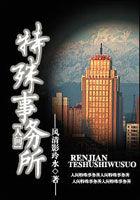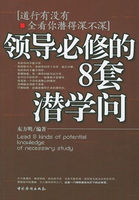That all men sleep by intervals; That no man can be nourished by wood or stones; That all men will be poisoned by hemlock: because these ideas have no connexion nor repugnancy with this our nominal essence of man, with this abstract idea that name stands for. We must, in these and the like, appeal to trial in particular subjects, which can reach but a little way. We must content ourselves with probability in the rest: but can have no general certainty, whilst our specific idea of man contains not that real constitution which is the root wherein all his inseparable qualities are united, and from whence they flow. Whilst our idea the word man stands for is only an imperfect collection of some sensible qualities and powers in him, there is no discernible connexion or repugnance between our specific idea, and the operation of either the parts of hemlock or stones upon his constitution. There are animals that safely eat hemlock, and others that are nourished by wood and stones: but as long as we want ideas of those real constitutions of different sorts of animals whereon these and the like qualities and powers depend, we must not hope to reach certainty in universal propositions concerning them. Those few ideas only which have a discernible connexion with our nominal essence, or any part of it, can afford us such propositions. But these are so few, and of so little moment, that we may justly look on our certain general knowledge of substances as almost none at all.
16. Wherein lies the general certainty of propositions. To conclude:
general propositions, of what kind soever, are then only capable of certainty, when the terms used in them stand for such ideas, whose agreement or disagreement, as there expressed, is capable to be discovered by us. And we are then certain of their truth or falsehood, when we perceive the ideas the terms stand for to agree or not agree, according as they are affirmed or denied one of another. Whence we may take notice, that general certainty is never to be found but in our ideas. Whenever we go to seek it elsewhere, in experiment or observations without us, our knowledge goes not beyond particulars. It is the contemplation of our own abstract ideas that alone is able to afford us general knowledge.
Chapter VII
Of Maxims 1. Maxims or axioms are self-evident propositions. There are a sort of propositions, which, under the name of maxims and axioms, have passed for principles of science: and because they are self-evident, have been supposed innate, without that anybody (that I know) ever went about to show the reason and foundation of their clearness or cogency. It may, however, be worth while to inquire into the reason of their evidence, and see whether it be peculiar to them alone; and also to examine how far they influence and govern our other knowledge.
2. Wherein that self-evidence consists. Knowledge, as has been shown, consists in the perception of the agreement or disagreement of ideas. Now, where that agreement or disagreement is perceived immediately by itself, without the intervention or help of any other, there our knowledge is self-evident. This will appear to be so to any who will but consider any of those propositions which, without any proof, he assents to at first sight: for in all of them he will find that the reason of his assent is from that agreement or disagreement which the mind, by an immediate comparing them, finds in those ideas answering the affirmation or negation in the proposition.
3. Self-evidence not peculiar to received axioms. This being so, in the next place, let us consider whether this self-evidence be peculiar only to those propositions which commonly pass under the name of maxims, and have the dignity of axioms allowed them. And here it is plain, that several other truths, not allowed to be axioms, partake equally with them in this self-evidence. This we shall see, if we go over these several sorts of agreement or disagreement of ideas which Ihave above mentioned, viz. identity, relation, coexistence, and real existence; which will discover to us, that not only those few propositions which have had the credit of maxims are self-evident, but a great many, even almost an infinite number of other propositions are such.
4. I. As to identity and diversity, all propositions are equally self-evident. For, First, The immediate perception of the agreement or disagreement of identity being founded in the mind's having distinct ideas, this affords us as many self-evident propositions as we have distinct ideas. Every one that has any knowledge at all, has, as the foundation of it, various and distinct ideas: and it is the first act of the mind (without which it can never be capable of any knowledge) to know every one of its ideas by itself, and distinguish it from others. Every one finds in himself, that he knows the ideas he has; that he knows also, when any one is in his understanding, and what it is; and that when more than one are there, he knows them distinctly and unconfusedly one from another; which always being so, (it being impossible but that he should perceive what he perceives,)he can never be in doubt when any idea is in his mind, that it is there, and is that idea it is; and that two distinct ideas, when they are in his mind, are there, and are not one and the same idea. So that all such affirmations and negations are made without any possibility of doubt, uncertainty, or hesitation, and must necessarily be assented to as soon as understood; that is, as soon as we have in our minds determined ideas, which the terms in the proposition stand for. And, therefore, whenever the mind with attention considers any proposition, so as to perceive the two ideas signified by the terms, and affirmed or denied one of the other to be the same or different;it is presently and infallibly certain of the truth of such a proposition; and this equally whether these propositions be in terms standing for more general ideas, or such as are less so: v.g.















